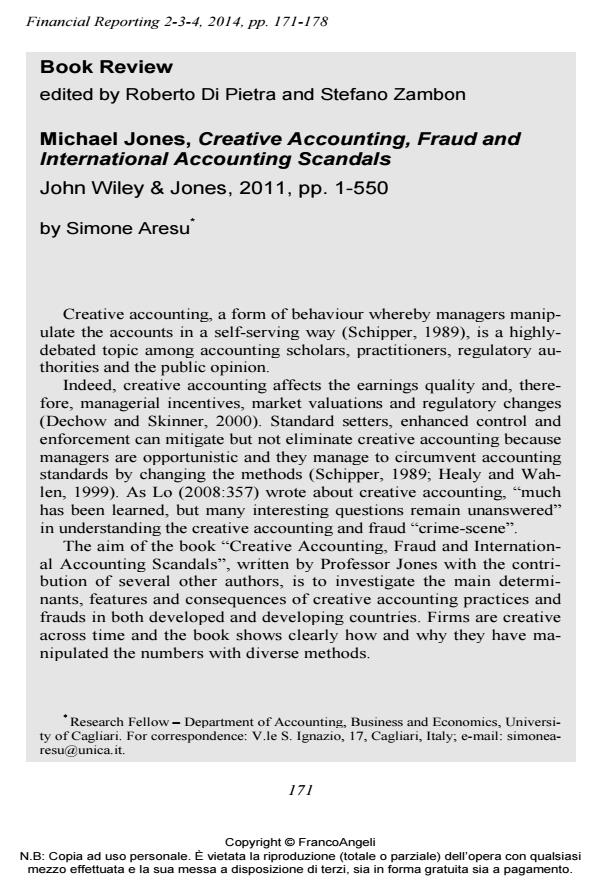Book review
Titolo Rivista FINANCIAL REPORTING
Autori/Curatori Simone Aresu
Anno di pubblicazione 2015 Fascicolo 2014/2-3-4
Lingua Inglese Numero pagine 8 P. 171-178 Dimensione file 171 KB
DOI 10.3280/FR2014-002008
Il DOI è il codice a barre della proprietà intellettuale: per saperne di più
clicca qui
Qui sotto puoi vedere in anteprima la prima pagina di questo articolo.
Se questo articolo ti interessa, lo puoi acquistare (e scaricare in formato pdf) seguendo le facili indicazioni per acquistare il download credit. Acquista Download Credits per scaricare questo Articolo in formato PDF

FrancoAngeli è membro della Publishers International Linking Association, Inc (PILA)associazione indipendente e non profit per facilitare (attraverso i servizi tecnologici implementati da CrossRef.org) l’accesso degli studiosi ai contenuti digitali nelle pubblicazioni professionali e scientifiche
Simone Aresu, Book review in "FINANCIAL REPORTING" 2-3-4/2014, pp 171-178, DOI: 10.3280/FR2014-002008